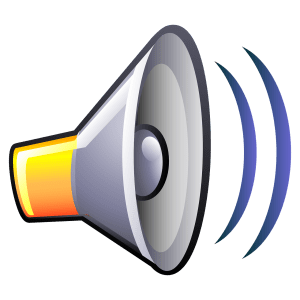
10 Expert Tips to Improve Your Vocabulary
There are certain key points in our lives where we need to expand our vocabulary quickly.
This can include studying or preparing for a vocabulary quiz in our 4th grade Language Arts class, for the challenging verbal section of the SSAT or ISEE in junior high, for the reading section of the SAT in high school, or even for the GRE for graduate school.
Yet no matter the age or the situation, the main tenets of effectively studying vocabulary remain the same. And we are going to share some of the best, most effective ways below!
The Importance of Building Vocabulary Skills
A good vocabulary gives a student confidence and assurance in both written and verbal communication, an increased affinity for reading, and better performance at school.
It is important for students (especially younger ones) to be aware of the kinds of vocabulary they will encounter in texts and on standardized tests. Generally speaking, there are 7 types of vocabulary:
- Synonyms: words that have similar meanings
- Homonyms & Homographs: pairs that are often confused, and how to keep them straight
- Foreign Words: words that English has “borrowed” from other countries
- Misleading Words: ones that don’t mean what they sound like
- Power Words: words that evoke an emotional response when read or heard
- Antonyms: knowing the antonym increases the chances of remembering a definition
- Verbal Analogies: testing critical thinking through relationships
Vocabulary skills are fundamental in reading critically. The benefits of a strong vocabulary are far-reaching, and can be achieved through reading outside of school for 20 minutes every day.
For parents of children in grades 2 through 8, as you read together with your child make note of which of these types of vocabulary words they are struggling with. Having your support will encourage your child to enjoy reading, retain more information, and help them to engage in the content.
How can you build vocabulary skills?
#1. Make expanding your vocabulary a habit for life.

The majority of this list is specifically created for students studying vocabulary for a difficult test, not for students who are trying to expand their everyday language to improve their speech or writing.
The difference? The former type of student generally needs to add words to his/her vocabulary bank fast! The latter, on the other hand, is someone who is trying to add to his or her lexicon with no specific time constraint.
However, if the latter situation applies to you, we salute and support your efforts! When you make learning and using new vocabulary words an everyday practice, when the time does come for you to take a test, you will have a much easier experience.
So with that in mind, here are 3 quick tips for improving your vocabulary all year long:
1. Read, read, read!
The best way to improve your vocabulary is to read. Read novels, history books, primary documents, newspapers, and academic articles. The more you read and the more variety in the types of works you read, the more your vocabulary will expand!
2. Jot down and look up words you don’t know.
Whenever you are reading, watching a movie, or talking to a teacher, get in the habit of jotting down any word you don’t know. Write it down on whatever you have handy: a notebook, scrap piece of paper, or Post-It. Make sure to look it up in the dictionary either right away or when you still have a chance to keep the context of how it was used fresh in your mind. You can even start a vocabulary journal where you can add these words and their definitions to at the end of the day.
3. Use new words in your writing and speech.
You won’t remember a word for the long-term unless you use the word. Try and use the new word in your own writing or the next time you are talking to someone. Make sure you know how to pronounce the word and feel comfortable using it in everyday speech. After awhile, the word will truly be a part of your vocabulary.
#2. Start early.
When studying vocabulary for a test, make sure you always have a specific date in mind. Perhaps you are taking the ISEE in November, the SAT in December, or have a quiz in your English class on Friday. No matter the situation, give yourself as much time as possible ahead of time.
Cramming is not an effective way to study!
Try to study around 30 minutes everyday. By creating a routine, you will naturally make studying a part of your daily life. Once you create this positive habit, you’ll find that you remember the words more quickly and for longer periods of time.
#3. Study words in smaller chunks.

If you are studying for a class, you most likely have a list of vocabulary words.
Break that list into smaller groups of words of about 10 and focus on those 10 words for the day. The next day, lightly review those 10 words, and then move onto the next 10, until you have studied every word on your list.
If you are trying to improve your reading comprehension for the SAT or ACT, or if you don’t have a list for a test like the SSAT or ISEE, create your own list. You can take practice tests and write down every word in a passage, question, or answer choice that you don’t know. Look up the answer, then write the definition for each new word — voila, you have created a study list!
#4. Focus on sentences rather than definitions.
Since we were little, we were taught to study vocabulary by writing a sentence with the new word. As a result, this well-worn advice may cause you to roll your eyes.
However, most students don’t understand why writing sentences utilizing the new word is so effective, especially when done the right way!
Our brains aren’t particularly good at remembering large pieces of data. That’s why if I show you 5 phone numbers, you aren’t likely to remember any of them. However, our brains are much better at remembering things that are visual, narrative, or associative.
When you study definitions, you’re trying to get your brain to remember a lot of small separate pieces of information that aren’t associated with anything else in your life (like the phone numbers). However, if you write a sentence, you can much more effectively use the above 3 strengths of your memory.
For instance, let’s compare these two sample sentences for the word:
Sanguine (adj.) – optimistic or positive, especially in a bad or difficult situation.
- Sentence Example #1: He is sanguine.
- Sentence Example #2: I love how sanguine my mother is whenever I make a mistake in dance class. She always tell me, “It’s okay, you tried your best and you’ll do better next time.”
The first sentence uses the word correctly, but offers you no hint at what the word sanguine means.
The second sentence demonstrates the meaning of the word by showing your mother acting optimistically, even in a bad situation. Not only is it descriptive, it’s also narrative and associative. You are associating this word with your mother – a real person in your life who demonstrates this word. Plus, you are associating the word with a real story from your life; for example, the time your mother told you it was okay to make a mistake.
You are drawing on the visual, associative, and narrative aspects of your memory, which means you are much more likely to remember what sanguine means come test time.
Always try to craft example sentences that not only are descriptive, but also apply to something in your daily life: a person, television show, book, class, activity. This makes the word “real” for you. It brings the word into a permanent part of your everyday language, quickly.
#5. Write a story.

If you have to learn a lot of words in a short time frame, take tip #4 to the next level by writing a story that uses 5-10 of your new words. It doesn’t matter if the story is goofy; in fact, if it is weird, you are more likely to recall it. Just remember: each time you use a word, you need to demonstrate the definition of the word.
Again, the brain likes remembering narratives. That’s why it’s easier for you to recall the details of a 3-hour movie rather than 1 page of a textbook.
Here’s a short example:
- amorphous (n.) – without real or crystalline form; having no definite form or distinct shape
- gregarious (adj.) – fond of company, sociable
- laconic (adj.) – using very few words
- reticent (adj.) – not revealing one’s thoughts or feelings readily
- surreptitiously (adv.) – in a way that attempts to avoid notice or attention, secretively
“I’ve always been a gregarious person. I love to go to parties, am part of multiple organizations in my school, and have been told by a few friends that I talk too much. So when I met Sam, I was thrown-off by his reticent nature. It was the complete opposite of me. If you want to know what I’m thinking, you can just ask, but I had a hard time gauging what he was feeling because he was so quiet! The first day we were paired as lab partners, I asked him how he liked this class:
“It’s good,” he responded.
“Are you good at Chemistry? I’m not bad. I prefer Biology, but mostly because the teacher last year used to let us watch movies on Fridays with popcorn. But what about you?”
“It’s okay,” he stated.
I would have to get used to these laconic responses.
One day we were using the instructions on the board to transform an amorphous blob of powder into a perfectly circular solid clay. I was having a hard time and getting more frustrated by the moment. All of a sudden, I sneezed and the powder flew all over my mouth, eyes, and noses. I started to choke.
As I yelped in surprise and started cleaning my face, I noticed Sam surreptitiously hiding his face behind his Chemistry textbook. Hearing little noises coming from behind the book, I reached out and grabbed the book to reveal his secret: he was giggling uncontrollably! I started laughing too, and our friendship was born.”
As you can see, the more effectively you can use a new word to create a story from people, places, or situations from your own life or even a favorite book, movie, or television show, the more likely you are to remember that word.
#6. Google Image the word.
Many of us are visual learners.
Take advantage of this by typing the new vocabulary word into Google and hitting images. If you can start associating that word with certain images, you will recall the definition more quickly and more easily.
#7. YouTube search the word.
You may be more of an auditory learner.
Search the word in YouTube, and try to find a clip of someone using the word in context. Oftentimes, once we hear someone use a new vocabulary word naturally, it becomes more ingrained in our everyday word bank.
As an extra bonus, you will get to hear the pronunciation of the word! It is very hard for us to remember a word, if we can’t remember how to say it. In fact, we will need to see that word twice as many times to recall it.
In short, learn how to pronounce the word and practice saying it aloud.
#8. Look up the word on the Merriam Webster website.
You may notice a pattern in our vocabulary-learning tips. The key to learning and remembering new words quickly is to make them part of your everyday life – a word that you read, hear, use, and associate with other things (like associating sanguine with your mother or reticent with your friend Sam).
Yet often when we start to write our sample sentence or study the definition, we’re not really sure how the word is used.
Merriam Webster’s free online dictionary site not only gives you the definition of the word, but also pulls articles from all over the web to give you current examples of the word being used in context. Once you see a word in the New York Times or the Wall Street Journal, you understand how the word is used on a deeper level. By understanding the word more, you are able to use it in writing and speech, plus overall remember it more easily.
#9. Pay attention to synonyms.
A focus on synonyms can help you in two ways.
First, it’s always easier to remember 1 thing than 5 things. A definition of a new word will be at least 5 words or longer, whereas a synonym is 1 word featuring the same or similar meaning of the new word. If you look up the synonyms for a new word, pick a synonym that you already know and cut down on what you need to remember.
Secondly and more importantly, when you need to improve your vocabulary a lot, it helps to start grouping new words together by synonyms. This way, you only have to remember 1 definition.
For instance:
- Loquacious (adj.) – tending to talk a great deal, talkative
- Verbose (adj.) – using or expressed in more words than necessary
- Garrulous (adj.) – excessively talkative, especially on trivial matters
- Voluble (adj.) – talking fluently, readily, or incessantly
You can try to remember 4 distinct definitions for 4 different words, or you can optimize your study time by grouping these 4 words together as synonyms that describe someone who is talkative or wordy.
#10. Say the word aloud.

We can’t say it enough! The more you quickly integrate the word into your everyday vernacular, the faster you will recall the word. If you are studying for a test, you may not have time to practice your new vocabulary words. So instead, make your studying an auditory exercise!
For instance, don’t just write down example sentences. Try to also say 5 quick sentences that use the new word.
Again, practice the pronunciation until you feel confident. If you don’t have time to write a story, grab your friend, sibling, or study buddy, and tell them a story orally using the words. If it’s an adjective, try to look around your room or think of someone you know who can be described by this word and say the sentence aloud.
For example, if your words are:
- Supercilious (adj.) – behaving or looking as though one thinks one is superior to others
- Lusterless (adj.) – not bright or shiny, dull.
You might say to yourself:
- “I don’t like my gym teacher because he is supercilious. He looks down on all of us students and makes fun of students he thinks aren’t good enough at climbing rope.”
- “This binder in front of me is a very lusterless and boring gray color.”
Putting it all together
Improving your vocabulary will not only make you a more articulate and interesting writer and speaker, but it will help boost your test scores!
Use our 10 tips to study vocabulary in a way that will quickly make it stick to your long-term memory.
For more expert advice, check out our College Test Prep, High School Test Prep, and MEK Learning Circles programs.
We help students of all ages succeed in the classroom and on tests.
Call 855-346-1410 or contact us here for more information.
We can’t wait to hear from you!



